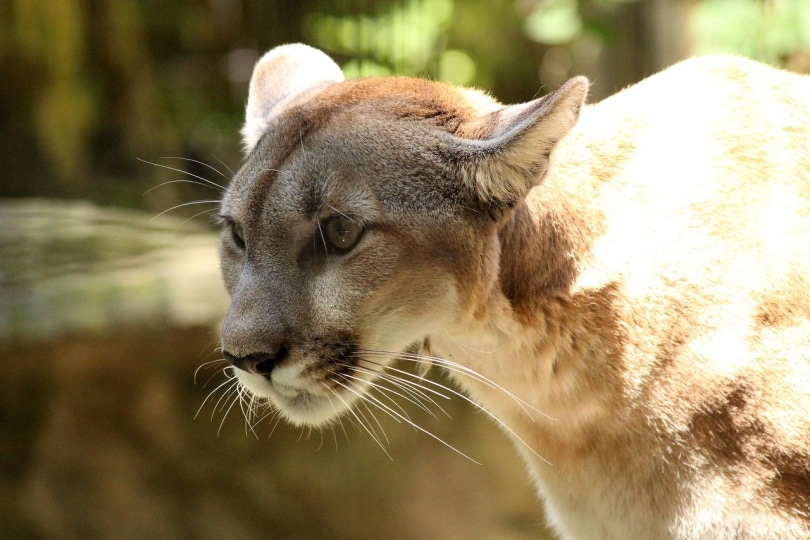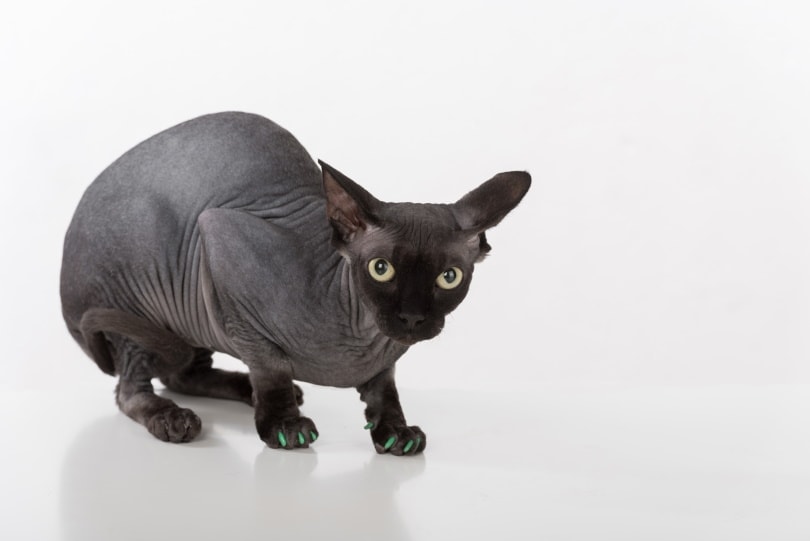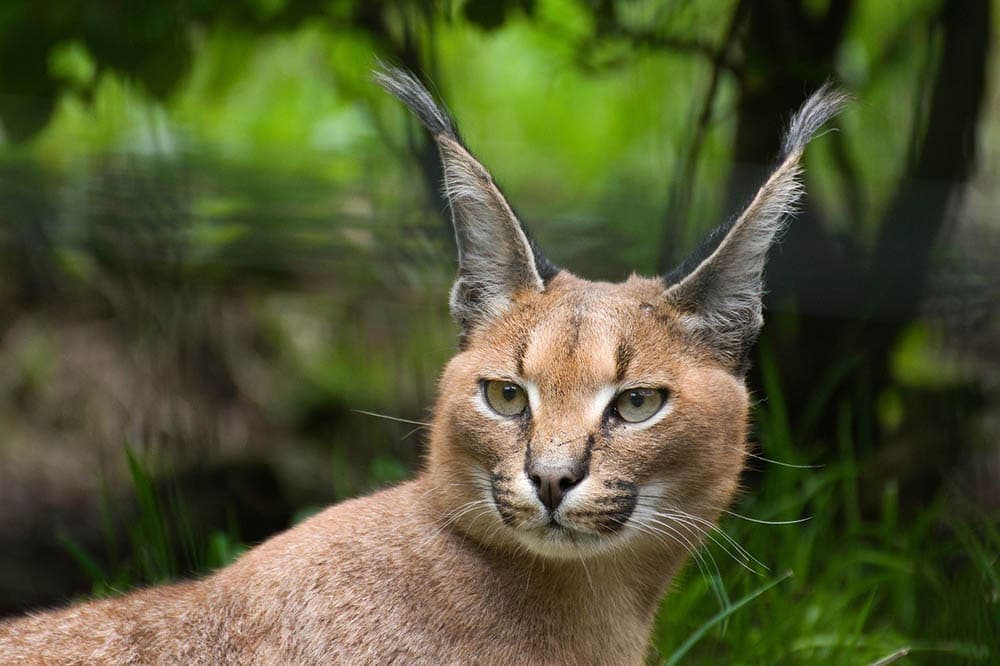With five distinct geographical regions, Georgia is home to several hundred species of plants and animals. The state has grand mountain ranges, wetlands, swamps, coastal plains, beaches, and estuaries. As human developments expand across the state, reports of wildlife sightings have increased. Whether you live in the state or plan to move to Georgia, you may have wondered if Georgia has wild cats. The bobcat is the only wild feline with an active population in Georgia, and it resides in nearly every U.S. state except for a few regions in the Midwest.
Since Georgia shares its southern border with Florida, a wandering mountain lion (also referred to as a Florida panther) could cross over into Georgia. However, state wildlife officials have not found evidence of an active mountain lion population in the state.
Mountain Lion Sightings

In 2008, a Florida panther was shot and killed by a hunter in Troup County, Georgia. Panthers have large territories, and a 100-mile journey from Florida seems possible, but one of the wildlife biologists examining the animal suggested it was a released pet rather than a wild cat. Most wild animals that travel long journeys have ticks, fleas, and other parasites, but the Troup carcass had none. The biologist, John Jensen, noticed that the cat’s pads were scuffed up like it had been walking on concrete and speculated that the cat was a former pet that was released.
Attacks on humans by large cats are rare. Since 1919, only 20 people have died from mountain lion attacks in the United States. Georgia wildlife officials have responded to several reports of mountain lion sightings but found no evidence of the animal. Before 2008, the last confirmed mountain lion was killed in 1925 in the Okefenokee Swamp. Jensen and other wildlife experts believe that residents often mistake another large animal like a bear or bobcat for a mountain lion.
Some Georgia residents have reported seeing black panthers, but experts believe that is unlikely. A black panther is not a true species but is only a name for a jaguar or leopard with black fur. The closest jaguar populations are Central and South America, and they’re unlikely to travel to Georgia.
According to the Mountain Lion Foundation, these states are the only regions that have active panther populations.
- Arizona
- California
- Colorado
- Florida
- Idaho
- Montana
- Nebraska
- Nevada
- New Mexico
- North Dakota
- Oklahoma
- Oregon
- South Dakota
- Texas
- Utah
- Washington
- Wyoming
Protecting Your Pets from Bobcats
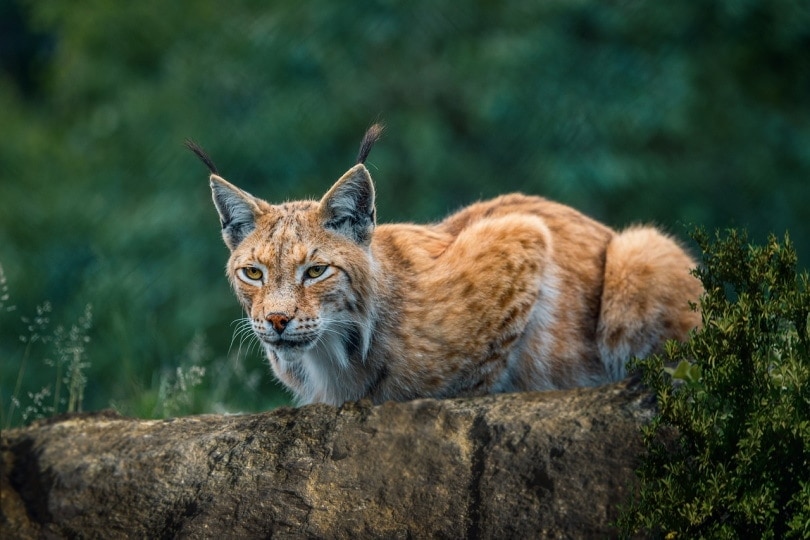
Some states, like California, forbid wild cat hunting, but Georgia only allows bobcats to be hunted from December 1st to February 28th. Bobcats are not as large and powerful as mountain lions, but they feed on smaller mammals, including domesticated cats and small dogs. They’re less common in suburban areas, and bobcats are generally afraid of humans and try to stay away from them. However, the cats are more likely to visit your property if they’re attracted by a food source.
1. Keeping Pets Inside
Bobcats typically hunt rodents, rabbits, and small reptiles. They prefer feeding near their homes, but when prey is scarce, they will visit backyards, farms, and homesteads looking for food. A Mastiff or Great Dane would not be vulnerable to an attack by a bobcat because they hunt smaller animals that put up less of a fight. A Chihuahua or housecat relaxing outside would not be as lucky if their scents were detected by a hungry bobcat.
If you allow your pets outdoors, the best time to avoid bobcats is during the day. They’re nocturnal hunters who are active at night and often hunt at dusk and dawn. Supervising your pet outdoors and keeping them inside at night can prevent any encounters with bobcats.
2. Fixing Your Pets
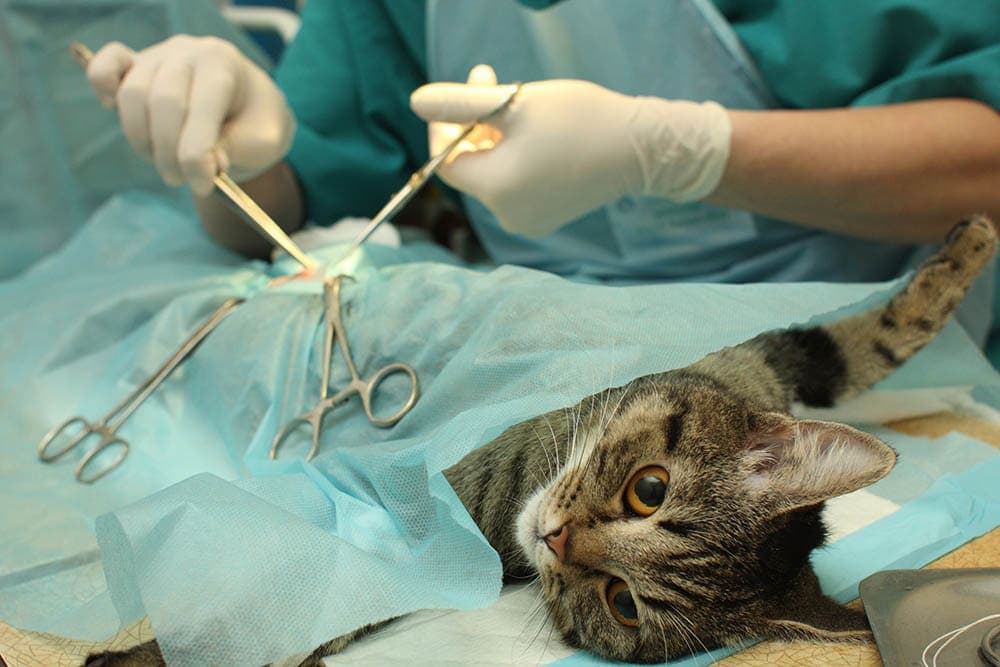
Although some pet parents are opposed to spaying and neutering because they believe it’s cruel, the medical procedure has several benefits. Spaying helps reduce breast tumors and uterine infections in dogs and cats, and neutering helps prevent testicular cancer and prostate issues. Fixing your furball will not solve all the behavioral problems, but it will make the animal less likely to mark or spray indoors or try to escape your home to find a mate. Losing a pet when it escapes your property is a scary experience, but a fixed pet has fewer reasons to leave when living in a loving home.
3. Removing Pet Food and Food Waste
Bobcats are attracted to live prey, but leftover pet food and food waste could entice a desperate cat to visit your yard. Removing pet food bowls and any remnants of outdoor dining will reduce your chances of seeing wildlife. Garbage containers should be secured or locked to keep wildlife away, but you’re more likely to see raccoons or coyotes feeding from trash bins than bobcats.
4. Securing Your Property with Fencing
Bobcats can leap over a 6-foot fence, but a taller fence can keep them away. If you have problems with wild creatures climbing over a fence, you can install rollers or rubber spike mats to prevent entry.

Georgia Wildlife to Avoid
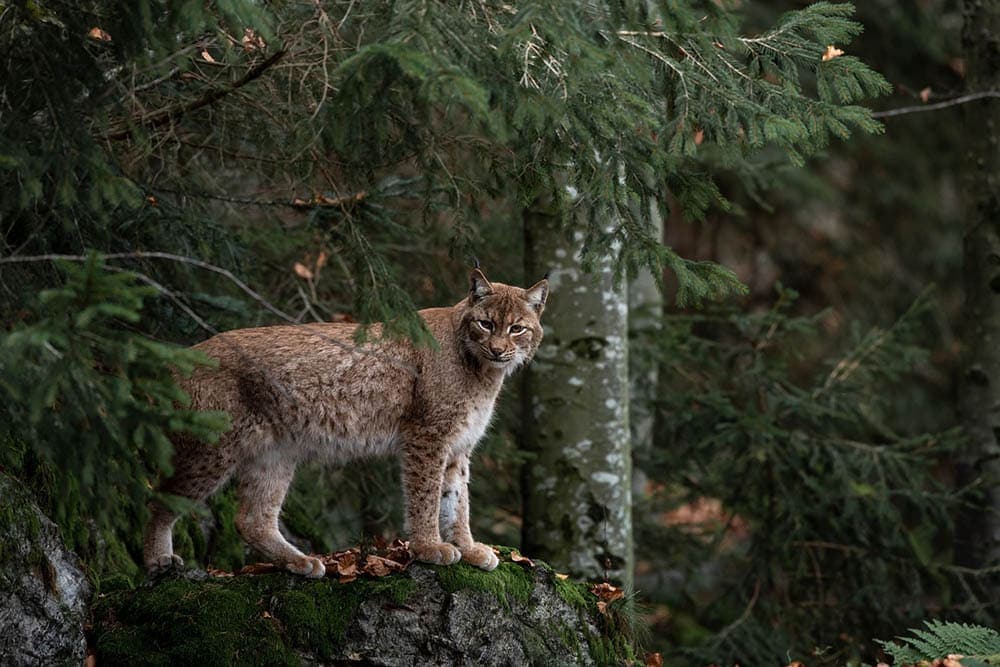
Georgia has several predatory animals, including black bears, foxes, bobcats, coyotes, and horned owls, but those creatures are more of a threat to outdoor pets than humans. Large cat sightings are concerning for isolated communities, but the most significant dangers come from Georgia’s deadliest organisms.
Black-legged Ticks and American Dog Ticks
Ticks are usually associated with warmer weather, but Georgia’s temperate climate provides a comfortable habitat for the nasty pest all year. Lyme disease was not reported in Georgia until 1987, and the largest number of cases have been in northern regions. Treating Lyme disease when detected early yields more favorable results, but late detection can cause joint pain and deterioration of the bone and cartilage. The Black-legged tick, the smallest tick in Georgia, is responsible for transmitting Lyme disease.
The American dog tick spreads Rocky Mountain Spotted Fever. It’s one of the most common tick-borne illnesses in the country and causes chills, headaches, fever, and bloodshot eyes. According to the University of Georgia, death occurs from Rocky Mountain Spotted Fever in 3% to 5% of all cases in the state. Wearing protective clothing with long sleeves, using tick repellant, and avoiding areas with tick infestations can protect you from Lyme disease and Rocky Mountain Spotted Fever.
Eastern Diamondback Rattlesnake
Georgia is home to six poisonous snakes, but the most dangerous species in the state and the country is the Eastern diamondback rattlesnake. The venom from a diamondback contains hemotoxin that can destroy tissue and red blood cells, and most of the snakes live in coastal dune habitats, hardwood hammocks, wiregrass, or palmetto flatwoods, and dry sandy areas. Since antivenom for rattlesnakes is widely available in hospitals, bites from the snake rarely result in fatalities.
Black Widow Spider
Although the Black Widow is considered the deadliest spider in Georgia, bites from the spider rarely lead to death. Accidentally grabbing the web or touching the spider often results in a bite, but the spiders are not aggressive and typically bite people as a defensive move. When you reach into overturned containers, woodpiles, or outdoor shelters, wearing protective gloves can protect you somewhat from spider bites, but it’s best to look before using your hand.
Final Thoughts
Mountain Lions are elusive predators that roam vast territories in Florida and western regions in the United States, but Georgia does not have an active large cat population. A Florida panther entering Georgia happens rarely, and some big cat sightings may be from escaped exotic pets. The bobcat is the only wild cat with large numbers in the state, but they only hunt in developed areas when their food sources are limited.
The Black Widow spider, Eastern diamondback rattlesnake, Black-legged tick, and American dog tick are creatures of more concern that should be avoided while enjoying Georgia’s diverse geographical regions.
Featured Image Credit: Linzmeier1, Pixabay
Contents

